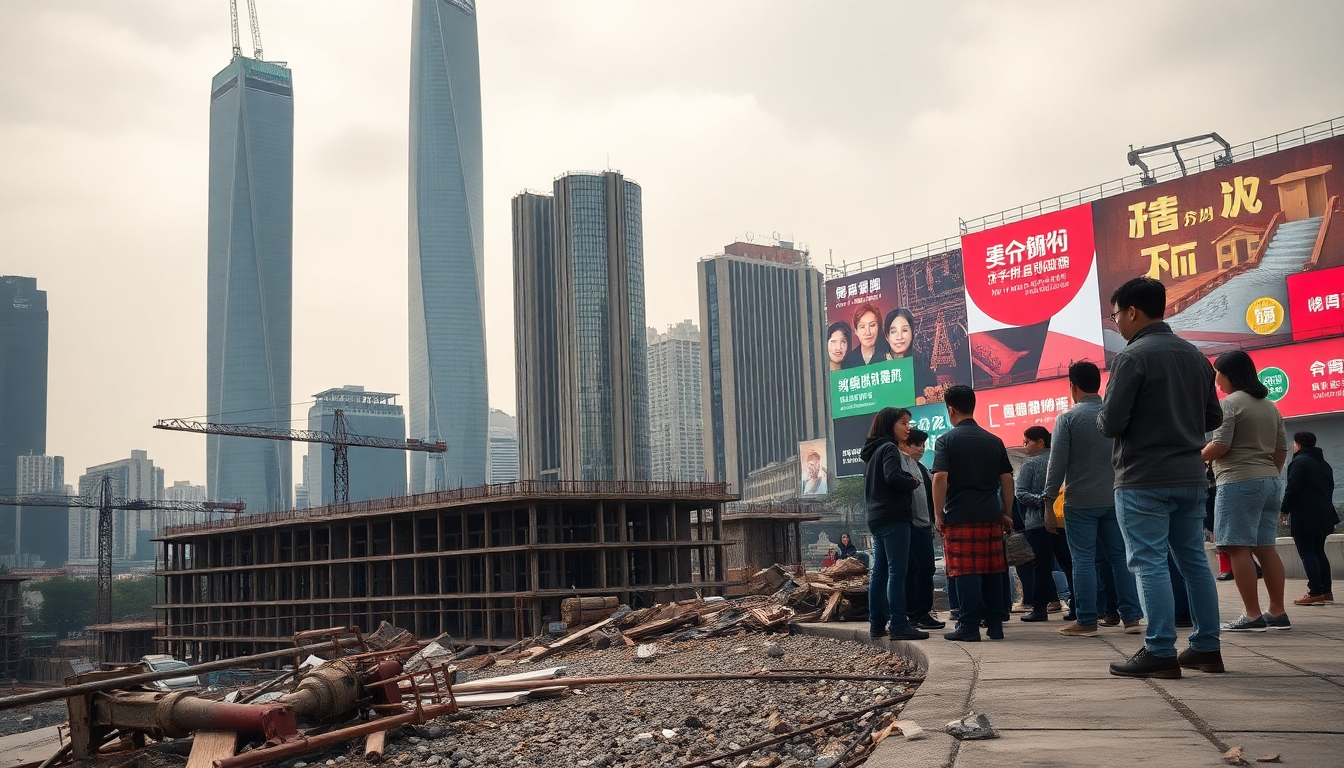Table of Contents
China’s economy may be on a path to meet government growth targets, but the reality for many citizens tells a different story, especially in the property sector. While headlines may sound positive, a growing number of people feel disconnected from these optimistic figures, revealing a widening gap between national economic indicators and individual financial experiences. In this article, we’ll delve into the intricacies of China’s current economic landscape, with a particular focus on the struggles within the real estate market.
Economic Indicators vs. Personal Reality
Recent reports indicate that China’s GDP growth is closely aligned with the government’s ambitions, suggesting a recovery is underway after the turbulence of the pandemic years. However, the ongoing downturn in the property market, coupled with trade challenges and deflationary pressures, paints a starkly different picture for many families. Take the case of Justin Li, a 36-year-old accountant from Chengdu, who exemplifies this disconnect.
Justin hasn’t seen a salary increase in five years, and the looming threat of layoffs only heightens his financial anxiety. With a stagnant monthly income of 7,000 yuan (around US$975), he finds himself in a precarious situation, wrestling with the idea of homeownership. Relying on rental housing, the dream of owning a home feels increasingly distant. This sentiment resonates with countless others in similar positions, highlighting the urgent need to bridge the gap between official economic data and the everyday realities faced by households.
The Gap Between Data and Daily Life
Experts stress the importance of recognizing the disparity between the optimistic economic statistics released by the government and the harsh realities faced by the average citizen. Chen Zhiwu, a finance professor at the University of Hong Kong, points out that the emotional landscape of individuals often diverges sharply from the rosy figures celebrated in government reports. While GDP growth might sound encouraging, it doesn’t always translate to better living conditions for many families.
Job security, particularly in a turbulent job market, plays a significant role in shaping consumer confidence and spending habits. For people like Justin, the fear of job loss and economic uncertainty leads to hesitance in making long-term financial commitments, such as mortgages. As a result, the property market continues to struggle, with potential buyers remaining cautious and hesitant to make substantial investments.
Looking Ahead
The persistent challenges within China’s property market have far-reaching implications for the overall economy. When consumers hesitate to engage in real estate transactions, it hampers recovery efforts, which are crucial for sustaining broader economic growth. Understanding the interplay between consumer sentiment and property market dynamics will be vital as we navigate the upcoming stages of recovery.
Investors and policymakers need to keep a close eye on these trends, as the housing market is a key pillar of economic stability. Moving forward, it’s essential to consider not just the macroeconomic indicators, but also the grassroots sentiments that influence market behaviors. As the economy continues to evolve, one thing remains clear: the true measure of economic health lies not solely in statistics, but in the lived experiences of its citizens.


